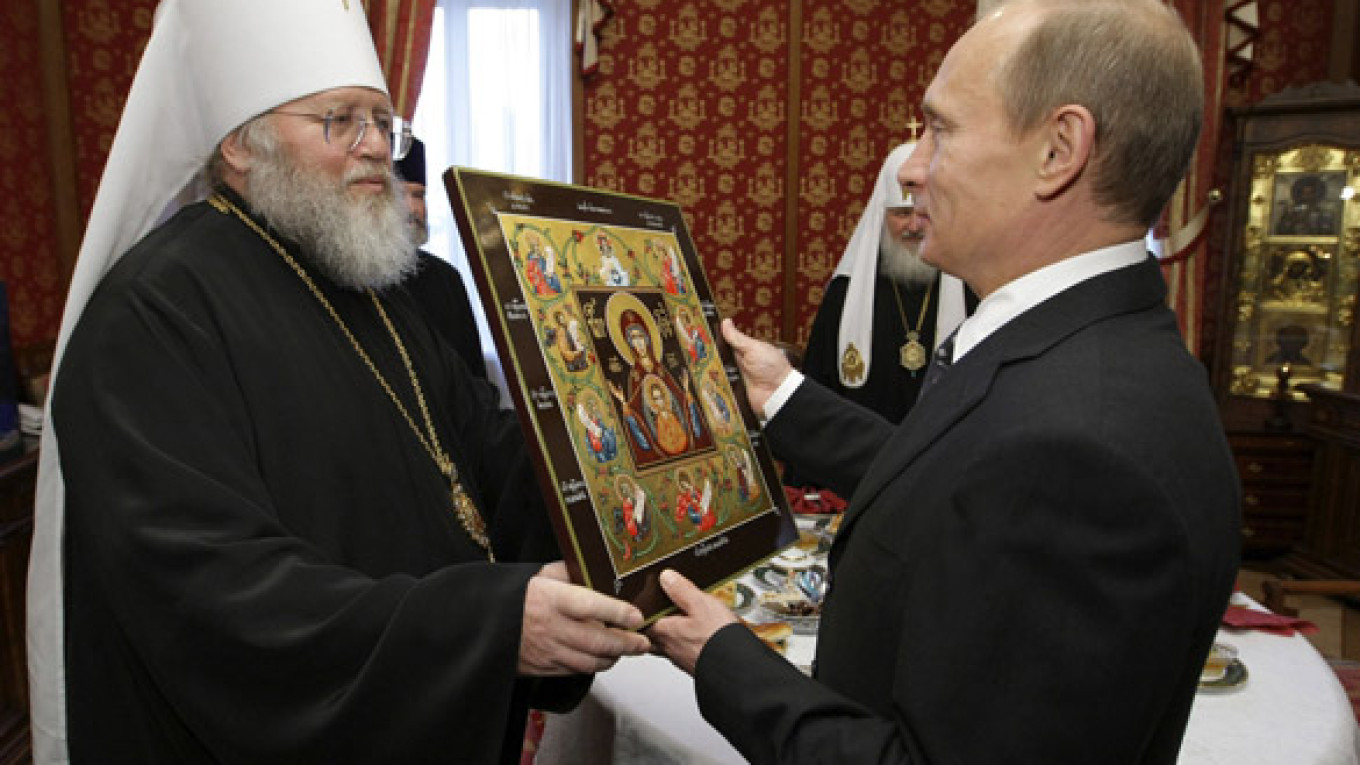The Cabinet on Wednesday will review final budget figures for next year that project unchanged spending levels from this year, despite economic hardships.
The government is planning to drain the last of the Reserve Fund and resume borrowing for the first time in 11 years to live up to the plan.
Spending is planned at 9.89 trillion rubles ($328 billion) next year, according to the budget that the Finance Ministry has submitted to the Cabinet, a Cabinet source said Tuesday.
This year’s spending is forecast at 9.84 trillion rubles.
More federal money will be allocated next year for defense, security and law enforcement, the official said on condition of anonymity in line with government policy for briefings ahead of Cabinet sessions. Another priority will be payment of retirement pensions, which will cost the budget 1.17 trillion rubles.
Funding for anti-crisis measures such as federal subsidies to companies will shrink significantly, the source said, without giving the total amount. As some of the measures, the official named setting aside 70 billion rubles for potential support to industries and 250 billion rubles for issuing federal bonds, if needed. Banks would exchange their preferred shares for the government bonds to use them as collateral to take out loans from the Central Bank.
The government earmarked 985 billion rubles in anti-crisis funds this year.
With revenues estimated to reach 6.95 trillion rubles, the deficit will stand at 2.95 trillion rubles, the source said.
The deficit will come to 6.8 percent of gross domestic product, according to the Finance Ministry’s budget proposal filed Monday, down from the 7.7 percent planned for this year.
The Finance Ministry is basing its revenue forecast on $58 per barrel of Urals crude, the main Russian oil export blend. The price is now about $70 a barrel.
The Reserve Fund, which will total 1.8 trillion rubles in January, will run dry next year as the government taps the money to plug the deficit, the official said.
As another measure to deal with the deficit, the government is planning to borrow 1.3 trillion rubles at home and abroad, including the bonds-for-bank-shares program, Finance Minister Alexei Kudrin said earlier this month.
The government will also renew offers to sell its assets to private owners, First Deputy Prime Minister Igor Shuvalov said late Monday. The assets will primarily be airports and seaports that are in need of investment, but may also include part of its stake in Rosneft, the country’s biggest oil producer, Shuvalov said, Bloomberg reported.
Most of the assets will go on sale after the middle of next year, he said, naming just one that could be sold this year: 20 percent of Sovkomflot, a shipping company.
Shuvalov said the government also plans to raise money by auctioning off licenses for developing oil, natural gas and metals deposits. He didn’t name them.
The Economic Development Ministry has predicted that the economy may contract by 8.5 percent this year and will grow by 1.6 percent next year.
A Message from The Moscow Times:
Dear readers,
We are facing unprecedented challenges. Russia's Prosecutor General's Office has designated The Moscow Times as an "undesirable" organization, criminalizing our work and putting our staff at risk of prosecution. This follows our earlier unjust labeling as a "foreign agent."
These actions are direct attempts to silence independent journalism in Russia. The authorities claim our work "discredits the decisions of the Russian leadership." We see things differently: we strive to provide accurate, unbiased reporting on Russia.
We, the journalists of The Moscow Times, refuse to be silenced. But to continue our work, we need your help.
Your support, no matter how small, makes a world of difference. If you can, please support us monthly starting from just $2. It's quick to set up, and every contribution makes a significant impact.
By supporting The Moscow Times, you're defending open, independent journalism in the face of repression. Thank you for standing with us.
Remind me later.


